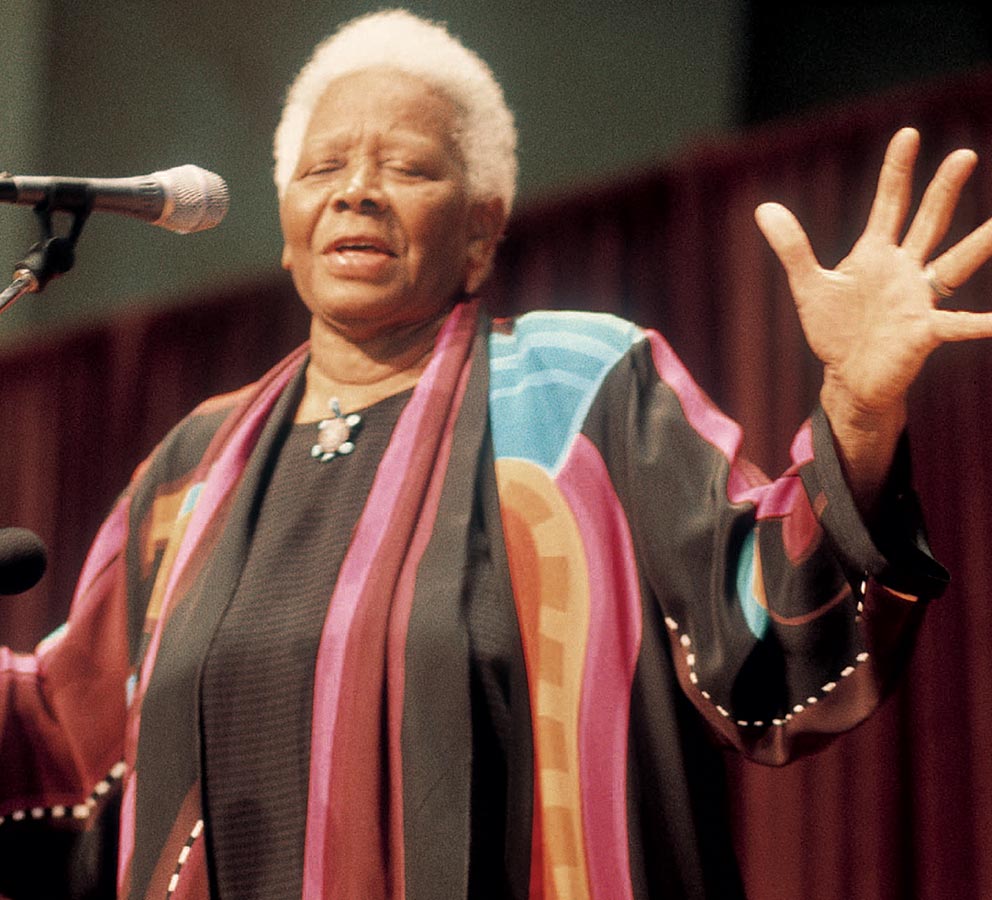Words
Remembering Ella Jenkins, Luminary in Children's Music, 1924-2024
November 12, 2024
Photo of Ella on-stage by Karen Hoyt.
We mourn the passing of Ella Jenkins, one of the most iconic folk musicians of the 20th century, who revolutionized children’s music with her “call and response” chants and songs and educated, charmed, and empowered generations of listeners around the world. She died peacefully on Saturday, November 9, at her residence in Chicago, Illinois. She was 100 years old.
Born in St. Louis, Missouri, on August 6, 1924, Ella grew up on the South Side of Chicago. Over seven decades, she was a prolific performer, educator, composer, and recording artist, producing 39 albums on Folkways Records and Smithsonian Folkways. Drawing on her own history of civil rights activism in the 1940s and 1950s, Ella used music as a tool for social activism. Through songs and rhythms that extolled values of antiracism, cultural pluralism, and environmentalism, she drew people together, challenging them to listen deeply to one another.
Among her notable albums are Call-and-Response: Rhythmic Group Singing (1957), African American Folk Rhythms (1960), You’ll Sing a Song and I’ll Sing a Song (1966), A Long Time (1970), Multicultural Children’s Songs (1995), and Ella Jenkins: A Life in Song (2011). Her well-known songs include “You’ll Sing a Song and I’ll Sing a Song,” “Did You Feed My Cow?” and “Miss Mary Mack.”
For her creative work and service to children, Ella received dozens of accolades, including a Grammy Lifetime Achievement Award in 2004, an ASCAP Foundation Lifetime Achievement Award in 1999, and the NEA National Heritage Fellowship Award in 2017. Her song “You’ll Sing a Song and I’ll Sing a Song” was added to the National Recording Registry at the Library of Congress in 2007, and her version of “Wade in the Water” was incorporated into Alvin Ailey’s modern dance classic “Revelations.” She was a regular on television programs for children, including “Sesame Street,” “Barney & Friends,” and “Mister Rogers’ Neighborhood.”
Jenkins had a worldwide audience but was particularly beloved in Chicago, where she got her start in the early 1950s as a “rhythm specialist” and Teen Program Director for the South Parkway YWCA. For decades she performed and taught at Old Town School of Folk Music and, beginning in 1968, the annual Ravinia Music Festival. It was also in her home state that she found her voice in the civil rights movement and the flourishing folk music scene, and there that she resided in her centennial year.
Ella’s legacy will continue to educate and inspire, leaving a lasting impact on our world. She will be remembered for the potency of her message — to be kind, to be curious — and for the many gifts she shared so freely, all the while encouraging others to do the same.